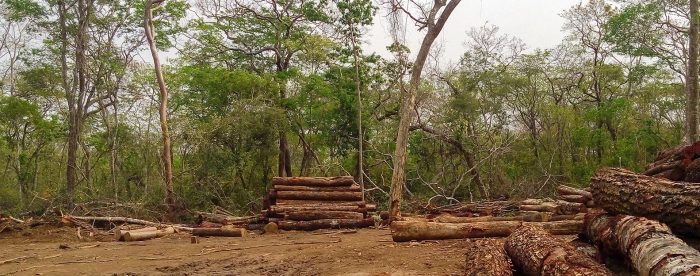A couple of years ago, the restructuring of forest management began in the Bolivian Indigenous Territory of Lomerío. This should lead to better logging plans, higher timber prices and a better distribution of income from logging. Villagers will benefit from this.
In the Indigenous Territory of Lomerío forest management did not function well. Timber companies determined to a large degree what was happening in the forests and neither the community or the indigenous representative organization — Central de Comunidades Originarias de Lomerío (CICOL) — had any input.
In 2018 and 2019, CICOL carried out a restructuring of the governance of its territory under forest management. Instituto Boliviano de Investigación Forestal (IBIF), Tropenbos International’s partner in Bolivia, supported this process with technical assistance and a proposal to restructure the Asociación Forestal Indígena de Lomerío (AFIL). This organization was responsible for the coordination of the Forest Management plans of Lomerío and was supposed to provide technical and organizational support to the villages for the development of forest management plans. In practice AFIL did not provide this service. AFIL was reformed into a new implementing organization, Territorial Technical Unit of Lomerío, and became part of the organizational structure of CICOL.
In 2019, various communities, with support from IBIF, analyzed the costs and benefits of forest management and timber extraction and drew up a business plan. In July, at a general assembly of CICOL, including representatives of the 29 communities of Lomerío, a resolution was adopted to improve forest governance. This would include greater participation by villagers, better distribution of benefits, leaders who are accountable for their actions, transparent timber sale contracts, mechanisms to combat low prices (communities have all agreed to not accept prices lower than 20 US$ per m³, and together they are stronger to face the timber buyers in the region), logging plans consented to by CICOL, regulations that are better enforced, more control by CICOL in general, and an agreement with the Forestry Authority on the control of transport documents.
Published in the Annual Report 2019
